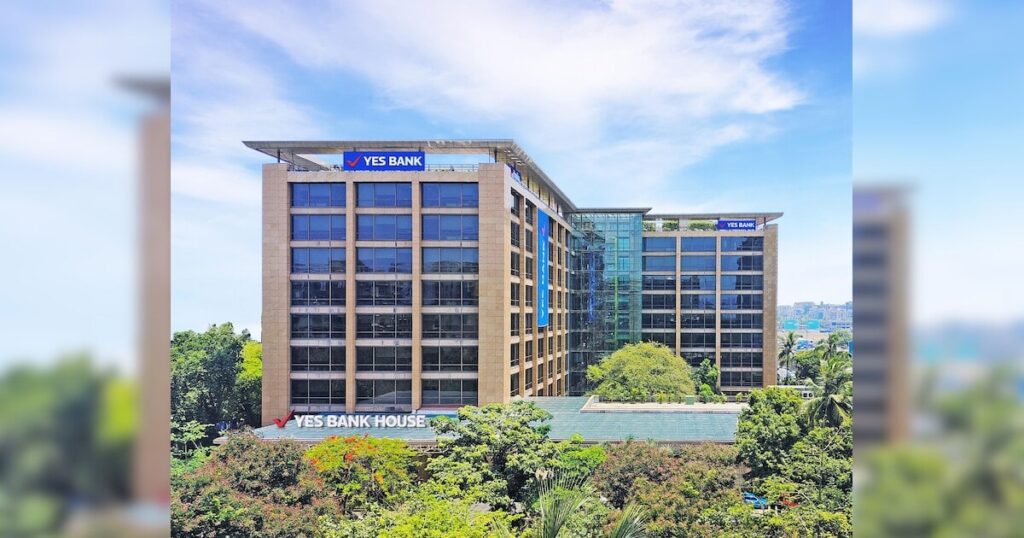MUMBAI: State Bank of India (SBI) and seven private sector lenders that had invested in Yes Bank during its reconstruction in 2020, will together sell 20 per cent stake in the bank to Japan-based Sumitomo Mitsui Banking Corporation (SMBC) for ₹13,482 crore, in the largest cross-border deal in the Indian banking sector.
Apart from SBI, the seven private banks having stake in Yes Bank are: HDFC Bank, ICICI Bank, Axis Bank, Kotak Mahindra Bank, Federal Bank, IDFC First Bank, and Bandhan Bank.
The transaction is subject to regulatory and statutory approvals, including from the Reserve Bank of India (RBI) and Competition Commission of India (CCI).
Any stake purchase by a foreign entity in an Indian bank needs RBI’s approval. Till now, the RBI has only allowed Fairfax, a foreign entity, to buy a controlling stake in CSB Bank.
Sources said SMBC wanted to acquire a 20 per cent stake only, and the eight banks agreed to sell their stake on a pro-rata basis.
The Japanese lender’s 20 per cent stake purchase keeps its total holding below the 26 per cent threshold, which otherwise would have triggered a mandatory open offer to acquire an additional 25 per cent.
According to Securities and Exchange Board of India (Sebi) regulations, an open offer is triggered when an acquirer’s shareholding in a target company exceeds 25 per cent of the target company’s total shares or voting rights.
Since promoter stake in Indian banks is capped at 26 per cent, such a move would have caused regulatory discomfort.
SBI will be offloading 13.19 per cent stake in Yes Bank for ₹8,889 crore at ₹21.50 per equity share, which is at 18 per cent premium to the lender’s closing share price on Thursday. The deal values the private sector lender, Yes Bank, at $7.9 billion.
The seven private banks will collectively sell 6.81 per cent in Yes Bank for ₹4,594 crore at the same share price at which SBI is selling.
The total stake of SBI and the seven private banks is currently at 33.71 per cent. Following the transaction, SBI will hold 10.78 per cent while the rest of the seven will together hold 2.93 per cent stake in Yes Bank.
“India represents a key market for us, and we see immense long-term potential in its dynamic and fast-growing economy. We are proud to invest in Yes Bank, a leading Indian bank with visionary leadership and a demonstrated track record of improving profitability,” said Toru Nakashima, president & group CEO of Sumitomo Mitsui Financial Group (SMFG), and Akihiro Fukutome, president & CEO of SMBC, in a joint statement.
SMBC is a wholly owned subsidiary of SMFG, which is the second-largest banking group in Japan, with total assets of $2 trillion as of December 2024. SMBC is among the leading foreign banks in India. SMFG’s another wholly owned subsidiary, SMFG India Credit, is among the largest diversified non-banking financial companies (NBFCs) in the country.
“This investment aligns with our commitment to building lasting, value-driven relationships in the region. We look forward to working closely with the team as a major shareholder in their next phase of growth,” they further said.
“We are excited to welcome SMBC, a globally renowned financial partner, as a major shareholder, whose investment marks a pivotal step in our next phase of growth,” said Prashant Kumar, MD&CEO, Yes Bank.
“We expect to benefit from their global expertise and high governance standards. This investment is a powerful endorsement of our transformation journey and future potential. Over the past few years, our growth has been shaped by the strong partnership and unwavering support of SBI, and they will continue to remain a valued stakeholder,” Kumar further said.
Citigroup Global Markets (Citi) acted as Yes Bank’s financial adviser, and AZB & Partners (AZB) as its legal advisor. SMBC was advised by its financial advisors JP Morgan and Jefferies, and legal advisors J Sagar Associates (JSA) and Anderson Mori & Tomotsune (on the Japanese law aspects).
In March 2020, during Yes Bank’s reconstruction, SBI committed ₹7,250 crore while erstwhile HDFC Ltd, and ICICI Bank invested ₹1,000 crore each. Axis Bank chipped in with ₹600 crore, and Kotak Mahindra Bank put in ₹500 crore in the equity shares of Yes Bank. IDFC First Bank, Bandhan Bank, and Federal Bank also chipped in with investments to rescue Yes Bank.
Following reconstruction, SBI held a 49 per cent stake in the bank. As much as 26 per cent of SBI’s equity investment and 75 per cent of the equity pumped in by the other seven players had to be retained in Yes Bank for three years.
The RBI had superseded the board of Yes Bank by appointing an administrator on March 5, 2020. AT-I bonds issued by the bank back then were written down.
In July 2020, Yes Bank raised equity capital of ₹15,000 crore through a follow-on public offer (FPO) supporting the capitalisation levels of the bank. Then in March 2022, Yes Bank raised ₹8,887 crore from global private equity (PE) investors – Carlyle and Advent International – through issuance of shares on a preferential basis. Both the PE players picked up 9.99 per cent stake in the bank.
Source: Business Standard


 TRAI Recommends Spectrum Fee For Satcom Operators
TRAI Recommends Spectrum Fee For Satcom Operators 